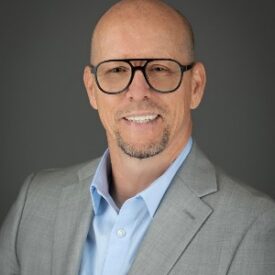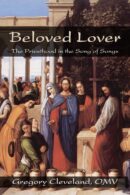Ahead of our Annual Gala, we are thrilled to give you a sneak peak of our keynote speaker, Jim Wahlberg. Jim Wahlberg is the CEO and Founder of Wahl St. Marketing & Consulting and has been working in and around the field of addiction recovery for more than 25 years. Jim’s relationship with his faith began through the compassion of a Catholic Priest and a visit from Mother Theresa during one of his stints in a Massachusetts State Correctional Facility. As Jim worked to maintain long-term sobriety and strengthen his faith, the Spirit led him to create a number of short films on the topic of addiction, including the critically acclaimed ‘If Only’ that is particularly relevant in light of today’s opiate crisis.
Your faith journey began in an unexpected place. How did that experience, and the guidance of a Catholic priest, shape your relationship with God and ultimately lead you to the Oblates of the Virgin Mary?
“It’s important to note that I came across a priest by trying to manipulate the system. I was in a prison in Concord doing six to nine years and looking for a way out by creating the illusion that I was rehabilitated. It was all through self help groups and therapy and counseling. The priest [in the prison, Fr. Jim Fratus] approached me and said ‘I’ve heard good things about you and want to offer you the opportunity for a job in the chapel.’ He was smoking a cigarette and I was wondering what was in it for me, could I get a cigarette? I had no idea that I was going to be brought to the foot of the cross.
A couple of days after starting the job – apparently my brother is in some sort of a singing group, selling cassettes in a store – I asked the priest, ‘can you bring me a copy of this so I can support my brother?’ I was looking at the outcome and not thinking about what I was asking the Fr. Fratus to do. He broke the law for me and my next thought was what was the next thing I could ask him to do for me.
Later on, Fr. Fratus asked me to clean the chapel on Saturday evening. I didn’t know that a vigil mass was going to be going on and that’s how I found myself there.
At one point, Fr. Fratus announced that Mother Theresa was coming to the prison. At that point, I still didn’t get it. I called collect to tell my Grandmother and for the first time she got excited and said “get me a rosary” and started praying. It was the first time I ever said anything to my Grandmother that mattered. At that point, I realized that Mother Theresea was important and that’s when things started to completely shift.
When it came time for Mother Thersea to visit the chapel, I was struck by how even though she was the VIP, she refused to go up to the altar and instead backed away and put her hands in a prayer and knelt on the floor with the inmates. That was very powerful and symbolic because I realized she knew that it was never about her but always about Jesus. That was always her focus.
When it came time for her to speak, the words she said were completely foreign. She said that Jesus loved me and that he died for me and that I was more than the crimes I committed…that I was a child of God.
From that moment on, I was confused, not sleeping, and overwhelmed. The next morning I remember running to the chapel to ask Father questions not knowing what’s going on but knowing I needed to know more about this Jesus thing. Memory is a funny thing: I almost distinctly remember him chuckling or laughing a little with an imaginary pen making a check mark, literally like that. And then he did something that was very unexpected. He sat down and started to lovingly teach me about the catholic faith. He knew that I made my first holy communion, but was not confirmed. He didn’t pull a dusty book and teach me in that traditional sense, but in more of a conversational way.
Through this relearning of faith, the most profound thing happened. The feeling of loneliness that I was suffering from and the need for acceptance and attention and love slipped away. I realized that I was not alone and that I was a child of God and he loved me.
As my conversion continued, Fr. Fratus supported me and when it came time for me to be transferred to a lesser security prison, he called up the priest at the other prison and filled him in on where I was on my journey. Moving to a lesser security prison was tangible evidence that God loved me and was not only leading me home to him, but home period.
Years later, Fr. Fratus, also married me and my wife and baptized my first child.”
How does the OMV mission resonate with your own work in addiction recovery and faith-based filmmaking?
“I really stumbled into making movies by spending a lot of time on a lot of sets with family members who work in that industry. The thought occurred to me that if they can do this I can do this! I originally got involved with secular projects and then during the opioid epidemic it was alarming how many people were losing their children and I felt guilty that I was enjoying this great recovery and my life was moving in the right direction but that I wasn’t doing anything.
I made a film about the opioid epidemic by putting the story together in my mind and then going out and asking one person/company if they would support it. It wasn’t a ton of money and they said yes, that they would love to do it. After that, I made about 10 other films on the topic of addiction and substance use disorder.
At this time, a lot was going on in the church that was heartbreaking and I started to drift away from my faith. But, I had another profound experience that solidified that you can create your own conception of God, regardless of if you’re a criminal or homeless, etc. and I made the decision that I only wanted to make films that glorified God.”
As the keynote speaker for this year’s Annual Gala, what message do you hope to share with attendees about faith, redemption, and the power of second chances?
“You’ll just have to attend to hear! I’m as excited as they are to hear what I’m going to say. If I get too consumed in what I’m going to say I find that I get too caught up in myself; It becomes about me. But it can’t be about me, it can only be about Jesus. As long as I feel as though I am talking about the Lord and what the Lord has done and is doing for me, then I feel like it’s just about him and that’s the most powerful part.”
In your experience, what role does faith play in helping people overcome challenges, whether it’s addiction, personal struggles, or finding purpose?
“I found myself coming back to my faith during the opioid crisis and was falling back in love with it but had some concerns about how faith was addressing the opioid crisis. There were so many people around the country that had lost children/had children suffering, and I didn’t feel like too many felt like they were welcomed/accepted with open arms [in the church].
I want my people there and my faith represented there as a pillar of resources. You can’t overcome a lot without Jesus – it’s the key, Jesus is the key to this whole thing and it all comes from trauma and brokenness and we know Jesus is the right healer. We try not to put a name on God to be more inclusive, but he had to find his way back to his faith and to the foot of the cross in order to really heal. And I continue to hope that we become more accepting as a faith.”



I met Jim at the Men’s Catholic Conference last week. I was overwhelmed by Jim’s speech. He is so authentic.
I can’t wait to see him again at the OMV Gala.